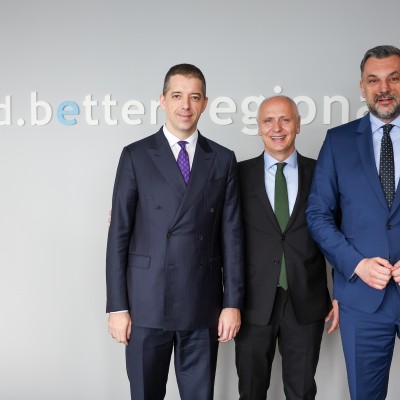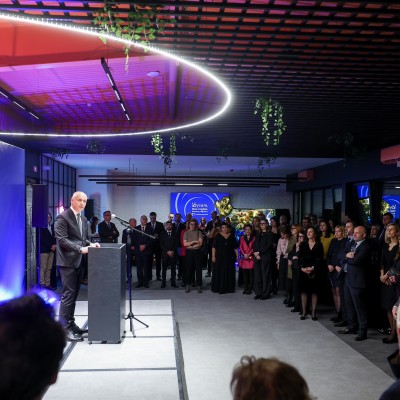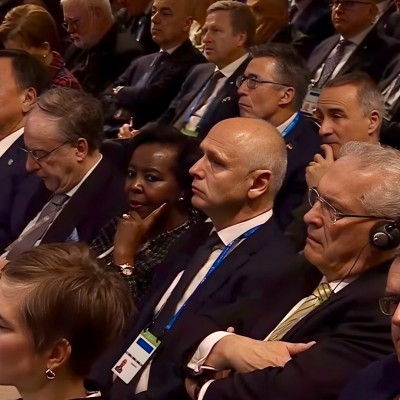Bregu: Regional integration cannot move ahead without EU integration
08 November 2019
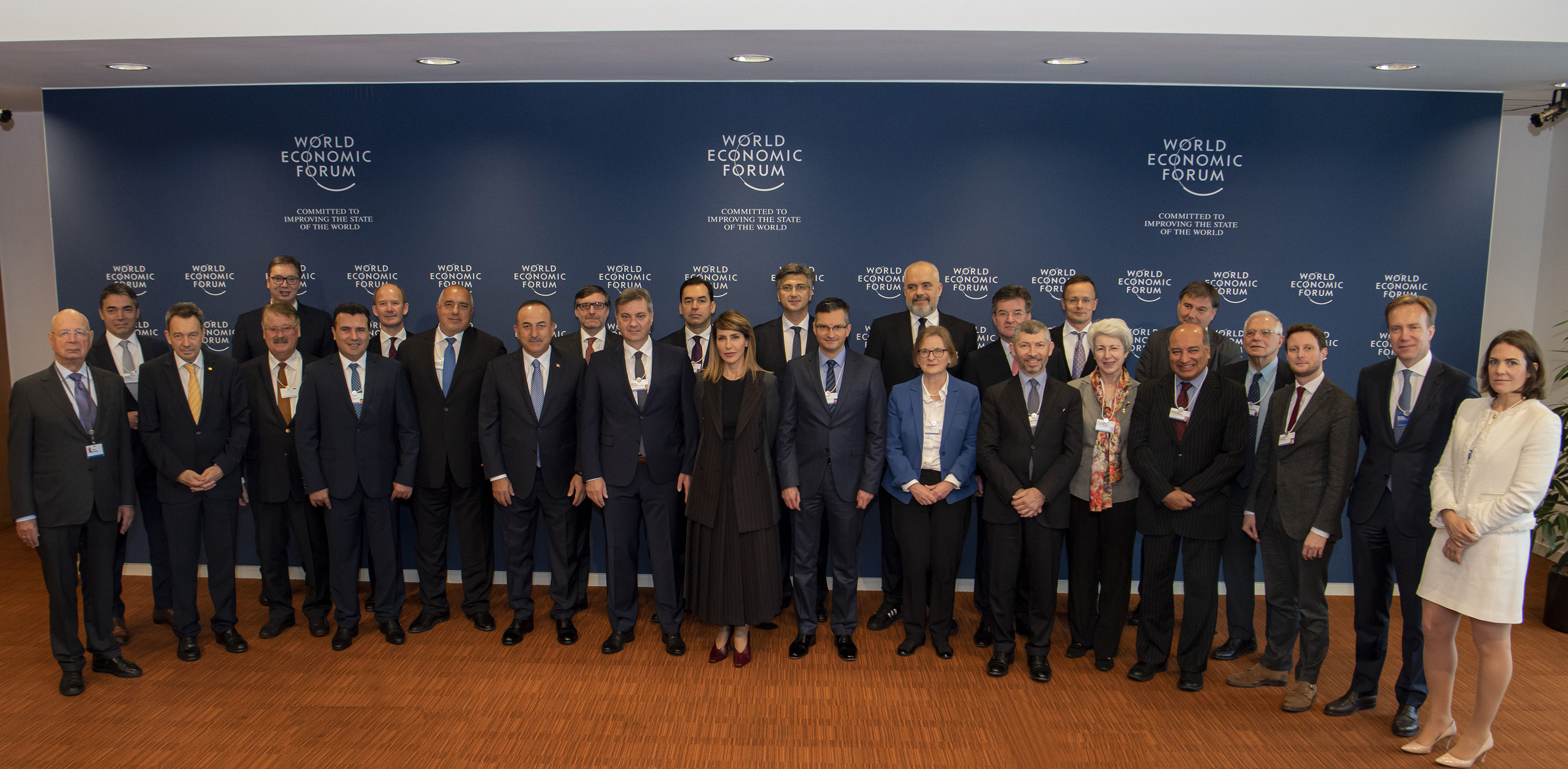
Secretary General of the Regional Cooperation Council at the Western Balkans leaders meeting, held in Geneva on 8 November 2019 (Photo: Courtesy of World Economic Forum)
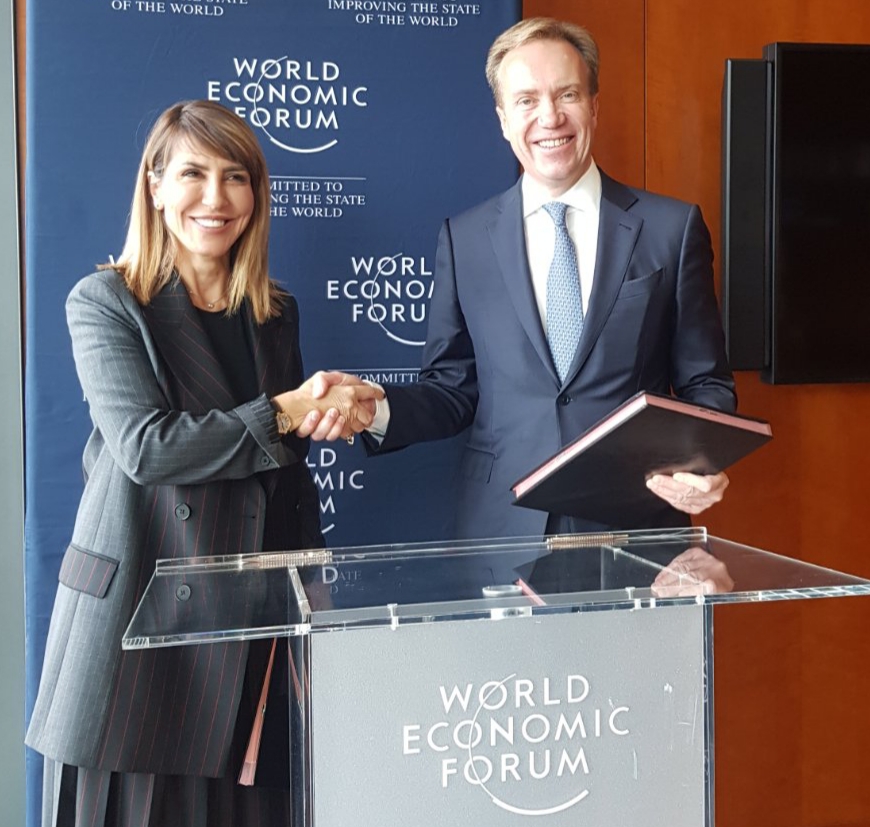
RCC signs Memorandum of Understanding with World Economic Forum (WEF)
On the side-lines of WB Leaders meeting in Geneva today, RCC signs Memorandum of Understanding with World Economic Forum (WEF) on accelerating regions competitiveness and innovation
Geneva – “I know that from our point of view it is sometimes hard to grasp that we are living in times of the world’s Fourth Industrial Revolution. But we are, and the region needs all incentives available to cope with it, and use it for its best advantage and harvest economic growth and stability. Therefore the Memorandum of Understanding (MOU) the RCC signed today with renowned World Economic Forum aims to help the region getting there – accelerating the reforms when it comes to our competitiveness and innovation”, said Majlinda Bregu, Secretary General of the Regional Cooperation Council (RCC) after the signing of MoU with Borge Brende, WEF President, on the side-lines of the WB Leaders meeting in Geneva today.
“Bilateral issues spill over regional cooperation, and now on top of that we have a red light on EU membership spilling over as well. Regional integration cannot move ahead without EU integration. So the challenges in front of us will be even bigger: enhancing the regional cooperation in the time of uncertainty and nailing the expectations on the Berlin Process vis-à-vis EU integration of the region. And while WB is waiting for some clarity on EU enlargement we need to enlarge the cooperation among WB6. All of us have to have a clear understanding what is happening with the cooperation processes in the region, because confusion over that will cause additional spill over regional cooperation,” said Secretary General Bregu after the leader’s meeting.
“The faster economic growth in Western Balkans lies in creating a single market, or Regional Economic Area - REA as we call it. The region would annually save 800 million EUR, about 1% of the WB’s GDP if cross-border coordination in WB reaches the EU average. A functional REA helps the economies to be competitive at large scale and innovation spreads faster in a unified market – and when it comes to the Western Balkans we are talking about 18 million people market. This is why partnering with WEF is so important - it is an additional step in fostering Regional Economic Area.”, added Bregu.
The collaboration with WEF envisions highlighting economic potential of the region and accelerating economic progress; fostering public-private partnership and resonating economic reforms to improve the innovation ecosystem and competitiveness of the region.
The signing ceremony took place on the side-lines of the Western Balkans leaders meeting focusing on the future of the region discussing fostering regional cooperation and encouraging reconciliation.
The meeting gathered region’s leaders, including Edi Rama, Prime Minister of Albania, Denis Zvizdić, Chairman of the Council of Ministers of Bosnia and Herzegovina, Zoran Pažin, Deputy Prime Minister of Montenegro, Zoran Zaev, Prime Minister of North Macedonia, Aleksandar Vučić, President of Serbia, Boyko Borissov, Prime Minister of Bulgaria, Andrej Plenkovic, Prime Minister of Croatia, and Marjan Šarec, Prime Minister of Slovenia. The meeting was also attended by Josep Borrell, Vice-President-designate of the European Commission, Matthew Palmer, Special Representative for the Western Balkans, Miroslav Lajcák, Minister of Foreign and European Affairs of the Slovak Republic, and the high level members of international community.

